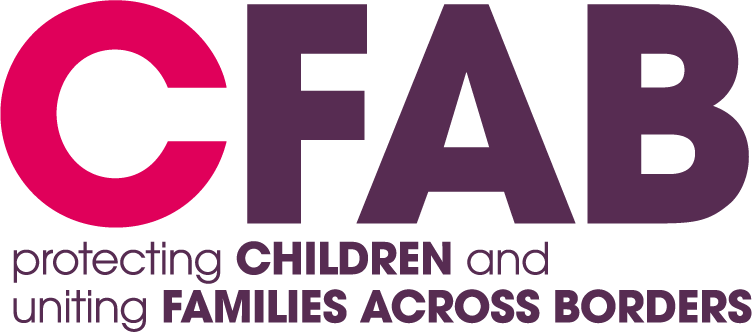This blog is the first of a series by Carolyn Housman, CFAB CEO, who will be regularly commenting on relevant issues affecting our work.
With so many external pressures facing child protection professionals, it wasn't easy to choose what topic I should focus on for my first blog post for CFAB. However, with post-Brexit complications presenting so many new and profound challenges to cross-border child protection, I wanted to touch upon those issues and what support CFAB can provide to others working in this field.
As you know, the EU transition period ended on 1st January 2021. Whilst ringing in what will hopefully be a more positive year, we left many arrangements and agreements that underpinned many of the UK's cross border child protection and family reunion cooperation with the European Union.
We left the Brussels IIa Regulation, altering how cross-border care proceedings with EU countries are now managed. We left The Dublin Agreements on reuniting asylum-seeking families. The free movement of people officially ended, meaning European children in the UK must settle their status by June 2021 to avoid losing any of their fundamental rights in the UK.
To tackle these challenges, my CFAB colleagues and I have been preparing a range of activities and resources. As Chair of the Cross Border Child Safeguarding Working Group, I recently engaged with the Association of Directors of Children's Services, asking them to lay out their plan to ensure all European children in care are supported regularise their status. I look forward to sharing their response with you in due course. To help further, my team have produced in-depth training resources for social workers on their role in the EU Settlement Scheme.
With regards to leaving Brussels IIa, we have produced training on how the legal framework around cross border care proceedings for children connected to the European Union has changed. We will continue to upskill the social work and children's rights sector on The Hague Convention 1996.
Both of these training resources can be accessed on Community Care Learn.
As the departure from Brussels IIa affects UK social workers at all levels, we have been communicating with the Central Authorities in all four nations to offer our support as experts in processing cases under The Hague Contention 1996. This is bolstered by our membership of the International Social Service network which holds a cooperation agreement with The Hague Permanent Bureau. As always, our dedicated Social Work Team continues to provide casework for social workers looking to place Looked After Children in the care of families in the European Union.
We are also continuing our work supporting reunited asylum-seeking families in the UK and met the rise in requests for assistance in the lead up to the departure from the Dublin III Agreement.
But this only the beginning and these changes will have a continuing impact for months to come, many of which may only become apparent as we settle into new ways of working. As experts in cross-border cases, the CFAB team will continue to offer support social workers in these unprecedented times both through our case work and by advising the UK government to make necessary changes to the system. This is an opportunity to make much-needed updates to the way international social work is conducted in the UK.
If you have any questions about how the UK’s exit from the EU may affect your practice, or if you want to discuss training, please do not hesitate to contact us. You can call CFAB's free advice line on 020 7735 8941 or email us at info@cfab.org.uk. You can also read the International Kinship Care Guide here.


